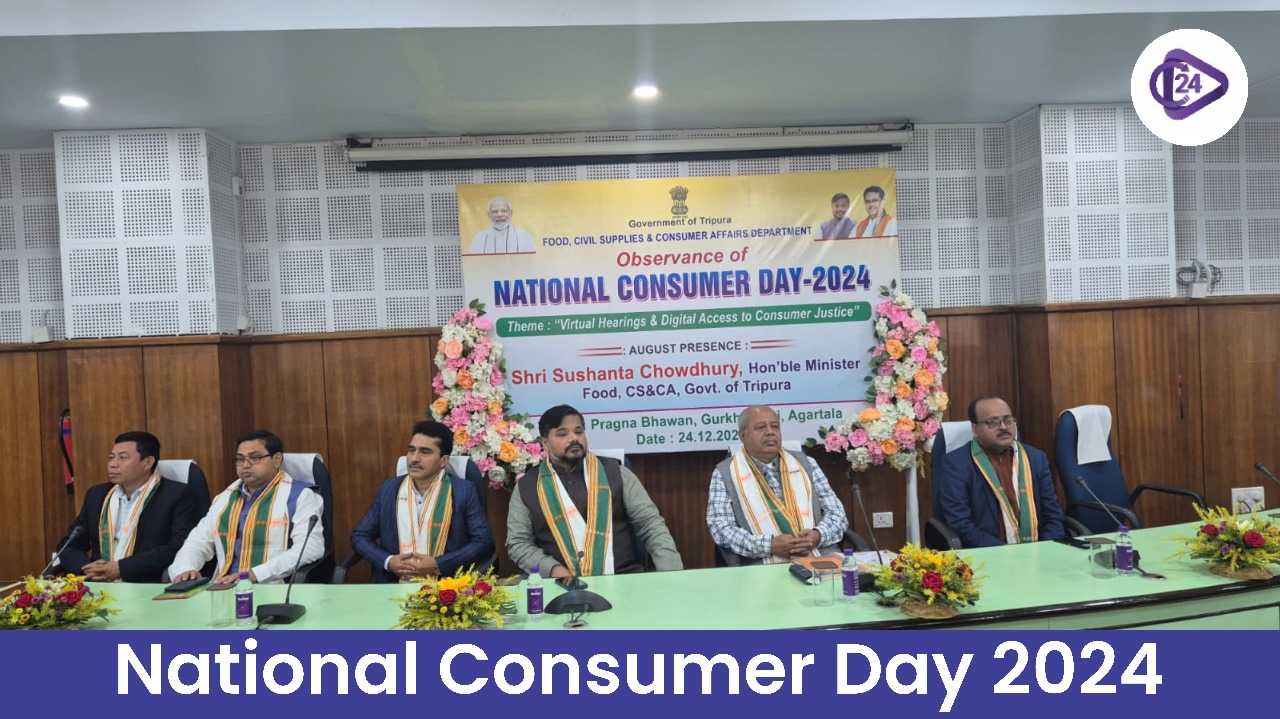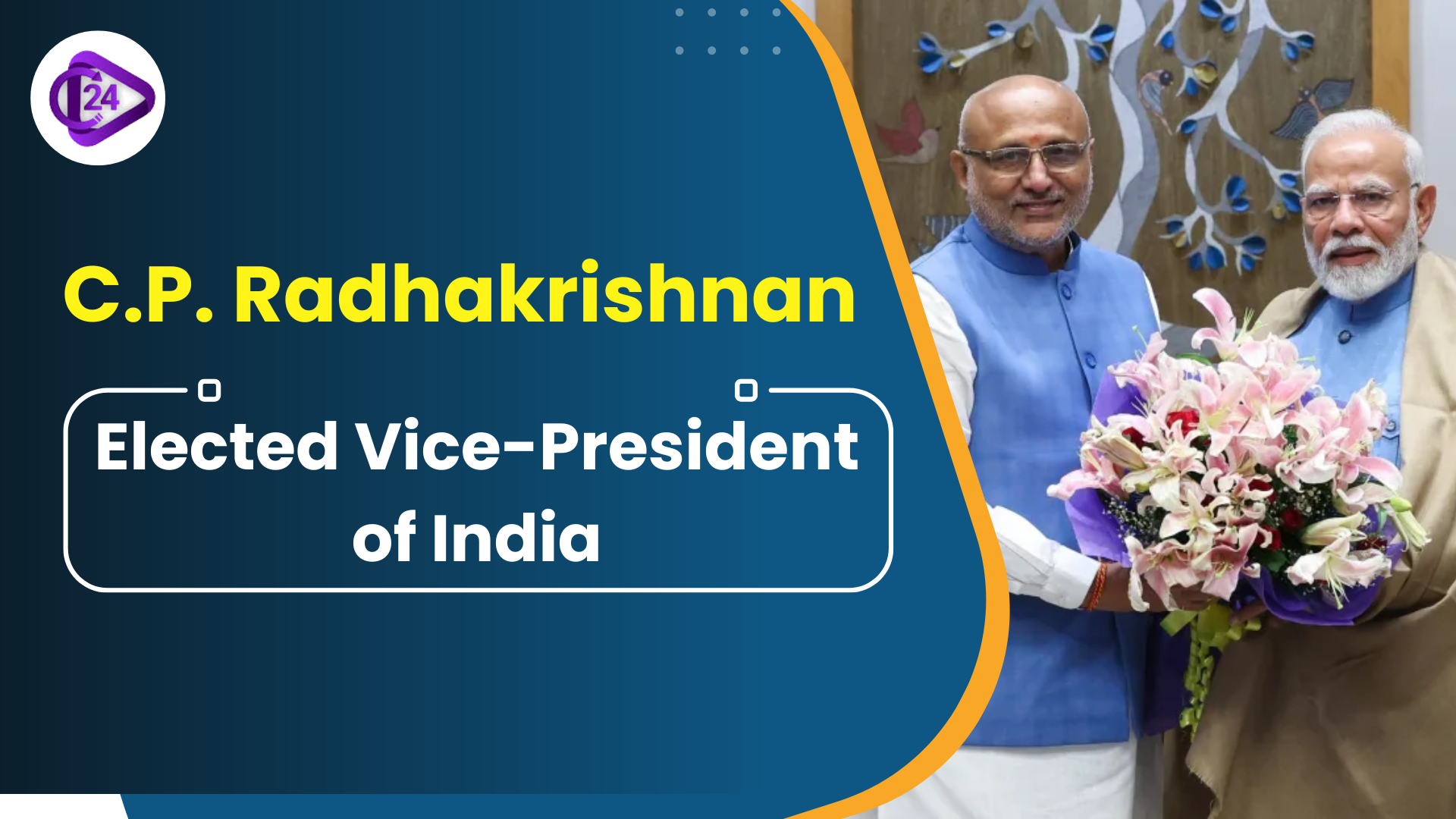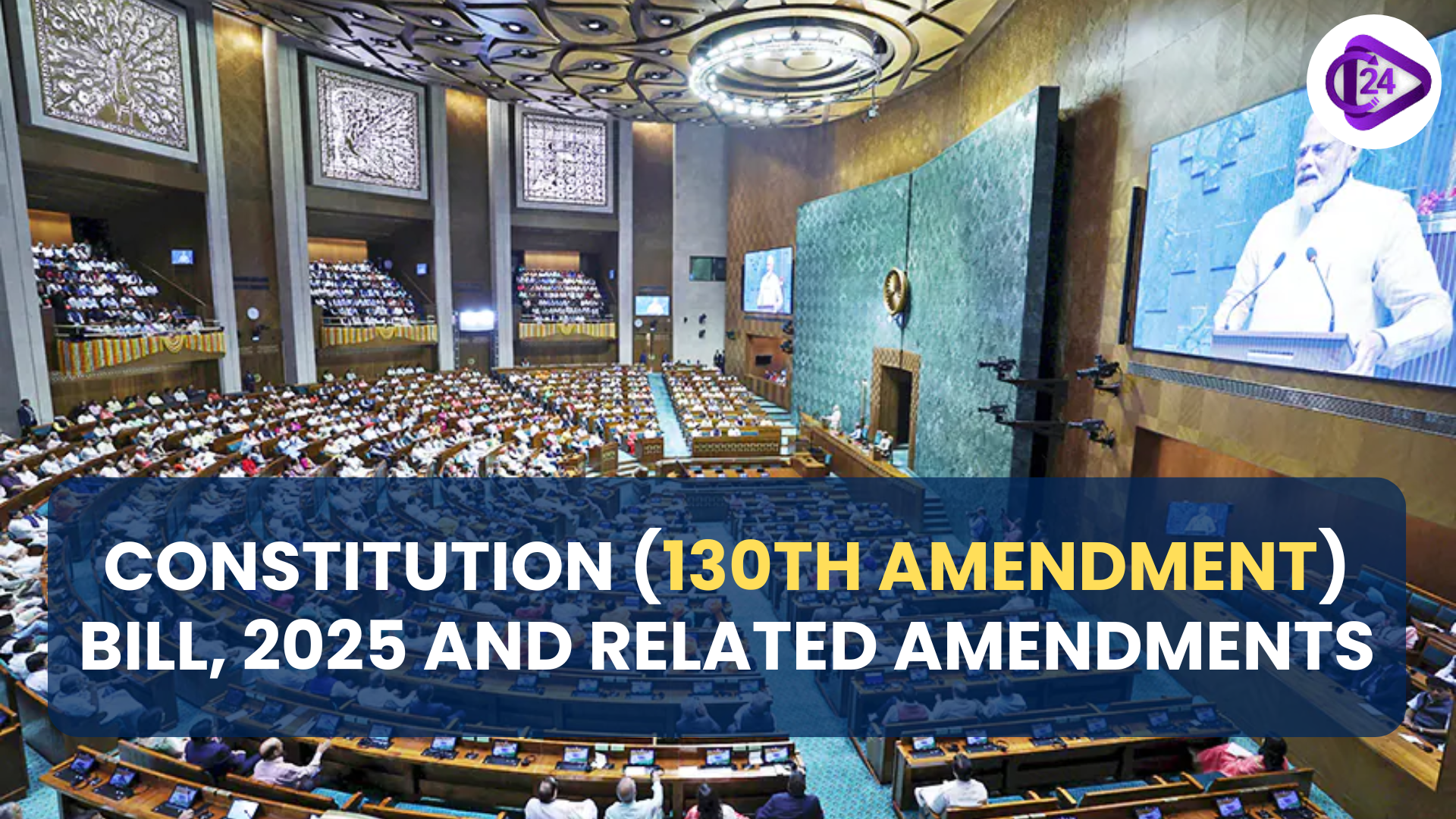
On National Consumer Day 2024, Union Minister Shri Pralhad Joshi launched key schemes aimed at enhancing consumer rights protection across India. These initiatives include the AI-powered National Consumer Helpline, new consumer safety pledges from e-commerce companies, and the introduction of new testing facilities. The theme for this year, "Virtual Hearings & Digital Access to Consumer Justice," emphasizes making consumer justice more accessible through technology.
Union Minister for Petroleum & Natural Gas Shri Pralhad Joshi inaugurates major schemes for the protection of consumer rights on National Consumer Day in 2024
National Consumer Day 2024 is observed to celebrate the Act which made the way for consumer rights and remedies in India. The Consumer Protection Act of 2019 was enacted with features for e-commerce, product liability, and mediation to cover changes in consumers' bluer prints.
Besides, the RTI introduced the Right to Information Act to support the development of consumer rights by enhancing government transparency. Collectively, all these laws have helped the consumer to have information in exercising their rights and getting recourse to their complaints.
Key Points
-
Launch of Consumer Protection Initiatives: Shri Pralhad Joshi engaged in the ‘Jago Grahak Jago App,’ ‘Jagriti App,’ ‘Jagriti Dashboard,’ and National Legal Metrology e, Mapp to thwart several ‘dark patterns’ in e-commerce platforms.
-
National Consumer Day Theme: The theme for 2024 which is ‘Virtual Hearings & Digital Access to Consumer Justice’ underlines the Corona pledge to participate in improving the consumer’s plight through virtual solutions and clear complaint handling mechanisms.
-
AI-enabled NCH 2.0: The second version of AI-Based National Consumer Helpline was launched which is in multiple languages and helping in faster grievance redressed through an AI chatbot.
-
New Testing Facilities: Shri Joshi commissioned ‘Organic Food Testing Laboratory at Guwahati’ and ‘Low Voltage Switch Gear Testing Facility at Mumbai’ to approve food and electrical products.
-
E-Commerce Consumer Safety: As part of this, heads of e-commerce companies that include Reliance Retail, Tata Sons, Zomato, and Swiggy signed a Safety Pledge to protect consumer rights.
-
Support for E-Justice: The efficiency of the dispute resolution was stressed as well as the E-Daakhil portal and the virtual hearings being pointed to as the important means which were to provide consumers with digital access to justice.
-
New Smart Standards and MoUs: SMART Standards (2025) debuted to enhance protection and ME legal metrology; the MoU signed with GNLU was also aimed at boosting member state capacity in the same sectors.
-
Organic and Technological Innovations: At the same time, achievements in technology development, such as the Tomato Grand Challenge, were also awarded during the event, these developments help consumers and the agricultural sector.
-
Collaborative Efforts for Consumer Empowerment: The Department of Consumer Affairs remains active and works together with other firms, including BIS and the Ministry of Aayush, to protect consumers across all sectors.
National Consumer Day 2024 Historical Background
National Consumer Day was inaugurated in the year 2000 even though consumer protection was enacted in the year 1986. Identifying consumer rights and the redressal mechanisms started with such legislation. Consumers in India have been subjected to this dynamic economy which has changed over the years through the years, affecting buyers’ behavior in addressing businesses. Due to these changes, there has recently been passed the Consumer Protection Act 2019 which included provisions for e-commerce business, product manufacturer liability, and mediation.
The Right to Information Act (RTI) serves consumer rights by adding another dimension of transparency to the governance system. Altogether, these laws have helped the Indian consumer come out of the realm of being mere buyers and give them the chance to act also as informed buyers and approach appropriate forums/ authorities for the redressal of their grievances.
National Consumer Rights Day In India
The Consumer Protection Act grants six fundamental rights to safeguard consumer interests:
-
Right to Safety: Protection for dangerous products and services.
-
Right to be Informed: The opportunity to receive accurate information about products and services to make a correct choice in any sphere.
-
Right to Choose: Choice autonomy through which an individual is free to choose from several products and services.
-
Right to be Heard: Being a part of the forum that deals with complaints regarding the consumption of goods and services.
-
Right to Seek Redressal: Measures concerning unfair trade practices or exploitative acts or trade practices.
-
Right to Consumer Education: Knowledge with the various tenets of consumer rights and responsibilities.
Consumer Rights in India
India has enacted several laws to strengthen consumer rights:
-
Consumer Protection Act, 1986 & 2019: Confers and recognizes the formation of consumer councils and the appellate mechanism for dispute resolution. Sets up the statutory code and the consumer councils and the dispute redressal forums.
-
Food Safety and Standards Act, 2006: A government agency that protects and controls the quality of food that is to be sold to the public.
-
Legal Metrology Act, 2009: Prescribes weights, measures and the trade practices to be followed in dealing with others.
-
Central Consumer Protection Authority (CCPA): Concerns itself with instances of abuse of customers.
Bodies of Consumers’ Redressal
The Consumer Protection Act establishes a three-tier redressal system:
-
District Commission: Solves all manner of cases up to ₹1 crore.
-
State Commission: Settles claims / disputes within ₹ 1 Crore to ₹ 10 Crore.
-
National Commission: Deals with cases where the overall claim is greater than ₹ 10 crore.
Conclusion
Consumer initiatives revealed during and after celebrating National Consumer Day 2024 reveal how the government intends to improve consumers’ protection and ensure that the process of seeking and receiving justice is friendly. The usage of both digital tools as well as artificial intelligence-augmented testing facilities will play a big role in enhancing consumer safety as well as their abilities. Also, exercising cooperation with different organizations and sectors will create sound and comprehensive consumer protection. Such endeavors help to go a long way toward protecting customers’ rights within the rapidly evolving and expanding economies with a digital element.



 Nepal to Get First Woman Prime Minister: Sushila Karki Appointed Interim Leader
Nepal to Get First Woman Prime Minister: Sushila Karki Appointed Interim Leader C.P. Radhakrishnan Elected Vice-President of India
C.P. Radhakrishnan Elected Vice-President of India Nepal Social Media Ban Triggers Mass Gen-Z Protests
Nepal Social Media Ban Triggers Mass Gen-Z Protests Constitution (130th Amendment) Bill, 2025 and Related Legislations
Constitution (130th Amendment) Bill, 2025 and Related Legislations The Role of Preventive Health Screenings in Achieving a Healthier India
The Role of Preventive Health Screenings in Achieving a Healthier India PM SVANidhi Yojana: Empowering Street Vendors with Financial Inclusion
PM SVANidhi Yojana: Empowering Street Vendors with Financial Inclusion Chhattisgarh Govt. Cuts Thousands of Forest Rights Titles
Chhattisgarh Govt. Cuts Thousands of Forest Rights Titles Ladakh Statehood & Sixth Schedule Demand Intensifies
Ladakh Statehood & Sixth Schedule Demand Intensifies The Need to Protect India’s Linguistic Secularism: Safeguarding Unity in Diversity
The Need to Protect India’s Linguistic Secularism: Safeguarding Unity in Diversity






